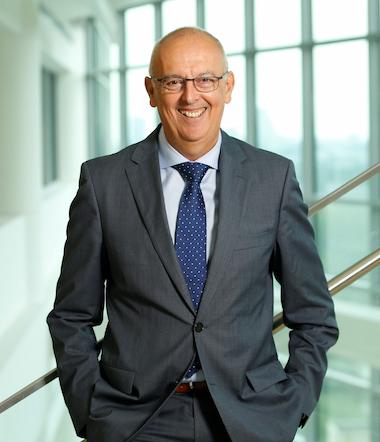Supporting the advancement of science for Waldenström’s macroglobulinaemia
Research to further scientific knowledge of the cause and treatment of the uncommon type of blood cancer, Waldenström’s macroglobulinaemia (WM), is being co-funded by the Leukaemia Foundation.

Dr Gareth Morgan, a Professor of Medicine at NYU Grossman School of Medicine, is principal investigator of the grant award that is supported by the International Waldenstrom’s Macroglobulinemia Foundation, the Leukaemia Foundation of Australia, and the Leukemia & Lymphoma Society.
WM is a rare type of non-Hodgkin lymphoma, which develops from B lymphocytes (a type of white blood cell) that become abnormal and grow out of control.
Recently, WM was separated into two broad groups, suggesting there are two pathways to the development of the disease. In this two-year research project, Dr Morgan’s aim is to gain insights into the timing and relationship of genetic events that may be driving the progression of WM and how these genetic events impact the clinical features of WM.
Whole genome sequence data from 89 newly diagnosed cases of WM will be used to build a map of the WM genetic landscape with the aim to define the mechanisms that drive progression of the disease.
These genetic landscape maps of WM will be examined for mutational signatures, or ‘mutographs’. Identifying these mutographs will enable Dr Morgan and his team to seek important insights into the processes at the start of disease development, as well as how these evolve leading to disease progression.
And a further 20 cases of WM will be studied to identify the specific sequence of changes that lead to the development of these two broad groups of WM, and to determine the cell origin of WM.
“The results of this project will add significant new information to our current molecular knowledge of WM,” said Dr Morgan, who will begin this research in January.
“And these findings will be aligned with clinical features to increase our current understanding of the response to and outcomes from available therapies. We hope this research may reveal potential new approaches to therapy.”
This research is kindly supported by WMozzies, Australian patient support group for Waldenström’s macroglobulinaemia, and the generous members of the WMozzies’ community.
Last updated on January 18th, 2023
Developed by the Leukaemia Foundation in consultation with people living with a blood cancer, Leukaemia Foundation support staff, haematology nursing staff and/or Australian clinical haematologists. This content is provided for information purposes only and we urge you to always seek advice from a registered health care professional for diagnosis, treatment and answers to your medical questions, including the suitability of a particular therapy, service, product or treatment in your circumstances. The Leukaemia Foundation shall not bear any liability for any person relying on the materials contained on this website.